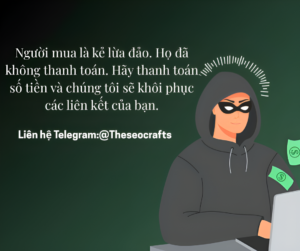As we continue to see the rapid development of online gaming, it is essential to understand its broader impact not only on entertainment but also on societal structures, education, and the workforce. Online gaming has gradually transformed from a casual pastime into a significant cultural and economic phenomenon. What was once seen as a solitary or niche activity is now an interconnected web of individuals, communities, industries, and technologies that are constantly evolving.
Gaming and Society: New Ways of Socializing and Learning
One of the most profound ways online gaming has influenced society is through its transformation of social interaction. In the past, socializing was largely confined to in-person interactions, but online gaming has changed this. Today, players can form deep social bonds, share experiences, and collaborate with people they’ve never met face-to-face. The online gaming community thrives on platforms like Discord, where voice chats, live streams, and community-building are common, further fostering social engagement and a sense of belonging.
For many, online gaming serves as an avenue for forming friendships and connections that might not be possible through traditional means. These friendships often transcend geographical boundaries, offering players the chance to connect with others who share similar interests and passions. Some players form “guilds” or clans, creating tight-knit communities that offer not just a space for gaming but for emotional support, advice, and even career opportunities. Online gaming has, in many cases, become a social platform in its own right, offering a space where individuals can share their lives, engage in meaningful conversations, and experience a sense of community.
Online gaming is also beginning to play a role in educational environments. Games like Minecraft and Roblox are increasingly being used in classrooms to teach subjects like mathematics, history, and problem-solving skills. Educational gaming, also known as “gamification,” helps keep students engaged and motivated by incorporating fun, interactive elements into lessons. Gamification has been applied in various industries as well, such as corporate training, where simulations and games are used to enhance learning experiences and boost productivity.
Moreover, online gaming introduces a new form of digital literacy. As players spend more time in virtual spaces, they develop skills such as teamwork, communication, critical thinking, and strategy. The ability to navigate complex game mechanics and collaborate with diverse teams is a skill set that is highly valued in the digital age. In fact, some of the skills developed through gaming are transferable to real-world professions, particularly in fields such as engineering, design, and technology.
The Future Workforce: Online Gaming’s Influence on Careers and Professional Development
The impact of online gaming extends to the workforce as well. In the past decade, gaming has become a legitimate career path for many individuals, ranging from professional gamers to content creators and esports commentators. Gaming and streaming platforms like Twitch and YouTube Gaming have enabled gamers to transform their passion into a full-time profession. These platforms allow streamers to monetize their content through advertisements, sponsorships, donations, and merchandise sales.
Esports, in particular, has grown into a billion-dollar industry. Professional gamers, who once played for the love of the game, now have the opportunity to earn large sums of money by participating in tournaments, securing sponsorship deals, and gaining a substantial following. The global scale of esports, with competitions held in massive arenas and live-streamed to millions, has led to the rise of esports as a competitive career on par with traditional sports.
Additionally, the behind-the-scenes industry of online gaming is massive, involving game designers, programmers, marketers, analysts, and social media managers. As the gaming world continues to grow, it creates new job opportunities in various fields, ranging from technology development to event planning. The gaming industry is now a key economic contributor, employing a wide range of professionals who work across different disciplines.
Beyond esports, game development is also seeing rapid growth. Indie game developers have the opportunity to reach audiences through platforms like Steam and itch.io, bypassing the traditional publishing model. Independent game studios are able to launch successful titles with small teams, contributing to a democratization of the industry. Game development careers continue to attract individuals with backgrounds in coding, design, art, and storytelling, making gaming an increasingly important sector in the global job market.
Niche Subcultures Within the Gaming Community: A Microcosm of Global Society
Within the larger framework of online gaming, there are countless niche subcultures that add rich layers of diversity to the gaming world. These subcultures foster their own traditions, languages, and community behaviors, making them important microcosms of the broader digital society.
One such subculture is the speedrunning community, where gamers attempt to complete games in the shortest amount of time possible. Speedrunners have developed specialized techniques, glitches, and strategies to push games to their limits, often leading to the discovery of hidden game mechanics and challenges. Speedrunning has grown into an organized competitive scene, with events such as Games Done Quick raising millions for charity. Speedrunners often become legends in the gaming community, with their skills attracting followers from around the world.
Another prominent subculture is the modding community. Modders create custom content, modifications, and game alterations that enhance or change the gameplay experience. From adding new levels to modifying game mechanics, modding allows players to personalize their experiences and, in some cases, share these creations with others. Games like The Elder Scrolls V: Skyrim and Grand Theft Auto V have thriving modding communities that extend the longevity of these titles far beyond their original scope.
Virtual worlds and simulation games have also given rise to subcultures such as Second Life, where users create their own digital avatars and build entirely virtual worlds. Second Life players engage in social activities, create art, develop businesses, and even conduct in-world commerce, mirroring real-world economics in a virtual setting. This space has allowed for the creation of entire economies and digital identities, leading to a vibrant subculture of digital entrepreneurs and socialites.
These niche communities demonstrate the flexibility and inclusivity of online gaming, offering players the opportunity to engage in various unique experiences that go beyond mainstream gaming. Whether through creating mods, competing in speedruns, or building virtual businesses, gamers find diverse ways to contribute to the gaming ecosystem and explore digital spaces in new and innovative ways.
Online Gaming and the Rise of New Digital Worlds: The Role of Virtual Reality (VR) and Augmented Reality (AR)
Looking ahead, the role of online gaming in digital spaces is set to expand significantly, particularly with the ongoing development of virtual and augmented reality. These technologies offer new ways for players to engage with games and each other, providing immersive, lifelike experiences that traditional gaming could never achieve.
Virtual reality (VR) allows players to fully step into a game’s environment, experiencing it as though they were physically inside the world. VR platforms like Oculus Rift and PlayStation VR are pushing the envelope on this immersive gaming experience, offering players the ability to interact with game objects and navigate virtual worlds through their physical movements. This opens up the potential for games that are not just experiences but environments where players live, work, and explore in entirely new ways.
Augmented reality (AR), on the other hand, blends the 7mcn virtual with the real. Games like Pokémon GO have already shown the potential for AR to overlay digital elements on top of the real world, encouraging players to explore their physical surroundings while interacting with virtual objects. The next generation of AR games will likely create new opportunities for online gaming, allowing players to interact with digital assets and other players in real-time, whether in their own homes or out in the world.
These technologies will transform not only the way we play but the nature of the games themselves. With the ability to physically move through digital spaces or overlay digital elements on the world around us, online gaming will evolve into something far more interactive and immersive, making traditional gaming seem archaic by comparison.
Conclusion: The Future of Online Gaming – Boundless Potential and Endless Innovation
The online gaming industry continues to break new ground, and as technology advances, the future holds incredible potential for new experiences, interactions, and opportunities. From its role in fostering global communities and shaping digital identities to its impact on career paths and economies, online gaming is more than just a form of entertainment – it is a driving force for cultural and technological evolution.
As the industry embraces emerging trends like virtual reality, augmented reality, and blockchain, online gaming will continue to push the boundaries of what’s possible in the digital realm. The future of online gaming is limitless, and it is up to gamers, developers, and tech innovators to shape this exciting, ever-evolving landscape.
This expanded version looks at the societal implications, workforce impact, niche gaming subcultures, and the future of digital interactions in gaming. Let me know if you want to explore any particular aspect further!
…

 Online gaming has experienced explosive growth over the past two decades, evolving from a niche pastime into a dominant cultural phenomenon that captivates millions of players worldwide. The rise of high-speed internet, powerful gaming hardware, and the accessibility of mobile devices has made online gaming more immersive and socially interactive. What was once a solitary activity has transformed into a global community, connecting people across borders and cultures. As the gaming industry continues to expand, the impact of online gaming on modern entertainment and social interaction cannot be overstated.
Online gaming has experienced explosive growth over the past two decades, evolving from a niche pastime into a dominant cultural phenomenon that captivates millions of players worldwide. The rise of high-speed internet, powerful gaming hardware, and the accessibility of mobile devices has made online gaming more immersive and socially interactive. What was once a solitary activity has transformed into a global community, connecting people across borders and cultures. As the gaming industry continues to expand, the impact of online gaming on modern entertainment and social interaction cannot be overstated. In the era of digitization, online gaming has emerged as a powerhouse, revolutionizing the entertainment landscape and bringing together millions of enthusiasts across the globe. This digital renaissance has not only redefined how people engage with games but has also transformed social interactions, competitive landscapes, and the very fabric of modern culture. As we delve into the intricacies of online gaming, it becomes evident that this virtual realm has become a cornerstone of contemporary leisure, influencing diverse aspects of our lives.
In the era of digitization, online gaming has emerged as a powerhouse, revolutionizing the entertainment landscape and bringing together millions of enthusiasts across the globe. This digital renaissance has not only redefined how people engage with games but has also transformed social interactions, competitive landscapes, and the very fabric of modern culture. As we delve into the intricacies of online gaming, it becomes evident that this virtual realm has become a cornerstone of contemporary leisure, influencing diverse aspects of our lives.




![Sell My Vacant Land Wisconsin [We Buy Land Fast]](https://image-cdn.carrot.com/uploads/sites/39269/2022/07/Sell-My-Land-8-21.jpg)